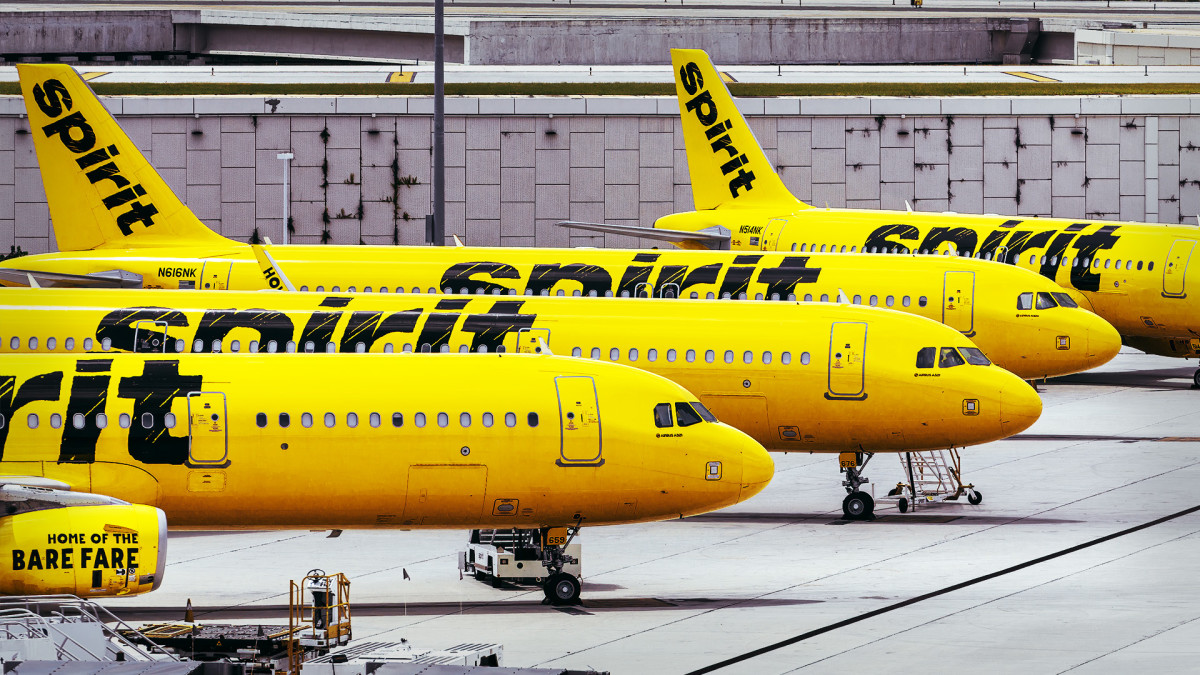
Amid chronic understaffing, airlines across the country have been making tough choices around where to fly and which airports to serve.
Earlier this week, JetBlue Airways JBLU announced that it was cutting 10 flights out of New York and Boston and stopping all service out of Vermont’s Burlington International Airport while Virgin Airlines SPCE pulled what was once it star London-Austin route just a year after launching.
Related: Spirit lost a staggering amount of money during the summer period
The latest "pulling out cold turkey" move occurred when, on Nov. 1, low-cost carrier Spirit Airlines SAVE announced that it would be stopping all service out of Denver.

Spirit Airlines
'Constraints and underperformance' behind cuts, Spirit says
"As we continue to learn more about how Pratt & Whitney's GTF engine availability impacts our fleet and operations, we're forced to make some tough choices," a spokesperson for the airline said in a press release. "After considering those constraints and the underperformance of our routes through Denver International Airport (DEN), we've made the difficult decision to discontinue service at the airport."
More travel stories:
- A new travel term is taking over the internet (and reaching airlines and hotels)
- The 10 best airline stocks to buy now
- Airlines see a new kind of traveler at the front of the plane
The reference is to the Pratt & Whitney PW1100G engines that the Federal Aviation Administration (FAA) investigated and issued an airworthiness directive for back in August — the instruction to replace parts of the engines on up to 20 planes is a big expense that also limits plane usage while the repairs are being made. As a result, Spirit is choosing to cut routes that are bringing in less traffic.
The affected routes, three flights between Denver and Fort Lauderdale, Miami and Las Vegas, will stop flying on Jan. 9, 2024. At the moment, Spirit runs daily service. to the Florida cities and a twice-daily flight to Las Vegas.
Spirit had a hard quarter
"We apologize to our guests for any inconvenience and will offer refunds to those with reservations after this date," Spirit said in a note that also thanked Denver's Department of Aviation "for their partnership and support over the years."
The engine expenses play into a larger pattern of financial trouble for the budget airline. On Oct. 26, Spirit released an earnings report with a $157.6 million net loss despite revenue of $1.2 billion — a loss of $1.44 per diluted share.
In announcing the news, chief executive Ted Christie brought up rising fuel costs of $3.15 per gallon along with lower traveler numbers after the traditionally popular travel period in the summer as the reasons behind the weak financial performance.
Spirit shares are down nearly 42% for the year to date and dropped by 5% when the earnings came out. To pacify investors, Christie said that the airline would be slowing its capacity growth for the coming year and focusing its efforts on flights that sell the most tickets — as such, many routes out of smaller regional centers like Denver are starting to go.
"Given these continued trends, we are evaluating our growth profile and our competitive position," Christie told investors. "We have already taken the first steps by modifying the cadence of our aircraft deliveries through the end of the decade and slowing our capacity growth in the near term."







